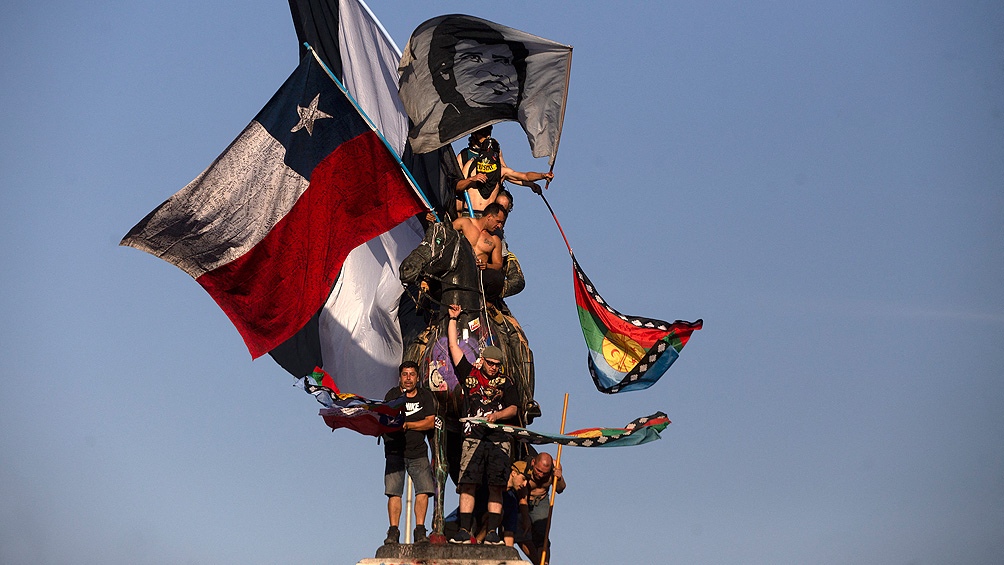RIO DE JANEIRO, BRAZIL – The country is in a decisive phase. The government tries to suppress street protests, Mapuche resistance, and demands for radical change with repression.
After October 18, 2019, Chilean history will be divided into two. The “cabros chicos” jumped the turnstiles of the subway, lit the fuse, and ignited an unstoppable volcano of pent-up rage. As a result, the entire neoliberal edifice, model, and pioneer in Latin America, which had always been so lavishly propagated, gradually collapsed.
Read also: Check out our coverage on Chile
There were four months of daily struggles until the pandemic smoothed the waters. However, the spirit of misery remained, forcing a constitutional process still underway, trying to uproot the roots of the institutional framework inherited from the dictatorship.

Two years after the social eruption, Chile is in a transition phase with long-lasting challenges and a crossroads in the immediate future: the November 21 presidential elections that appear to mark the end of the duopoly that has ruled for the past three decades.
A month before the election, there are a few certainties. First, no candidate is likely to receive half the vote, and the election will be decided in a runoff on December 19.
Leftist Gabriel Boric of the Frente Amplio (FA) and Communist Party (PC) alliance, a lawyer, leader of the 2011 student movement, and a member of parliament since 2014 seems to be one of those best suited to prevail.
With his moderate profile, he attracts votes from the center. Still, it is difficult for him to appeal to the larger world, which is skeptical of institutional politics and usually does not go to the polls (less than 20% of voters went to the polls in the June regional elections).
At only 35, Boric could become the youngest president in Latin American history.
Until recently, polls, never very reliable, saw Sebastián Sichel, the ruling party’s candidate, a 43-year-old lawyer and former minister of social development under Sebastián Piñera, in second place. But now they show him in free fall, driven by various allegations and the Pandora Papers scandal.
For now, Republican Party candidate José Antonio Kast leads one poll ahead of Chile’s November presidential election for the first time. The opinion poll also showed that José Antonio Kast was the best-rated candidate after the last televised debate, with 32% of the vote.
The fourth promising candidate is Yasna Provoste, who belongs to the remnant of the former Concertación, the other bloc that ruled in the post-dictatorship period.
With her long career with the Christian Democrats and as a former official in the leftist governments of Eduardo Frei, Ricardo Lagos, and Michelle Bachelet, it is tough for her to gain a foothold in “old politics,” the moderate center of Sickle and Boric.
There will be another spicy factor in the run-up to the elections: the impeachment trial Piñera is facing in Congress over his dealings with tax havens revealed in the Pandora Papers.
The next president will have to govern during this transitional period, marked by the strong notion that “Chile has woken up.” A flame ignited by the revolt of 2019, whose first significant achievement was drafting a new constitution, which is also latent outside the institutional framework in social organizations, feminist collectives, and territorial assemblies.
Regardless of who will occupy the Palacio de la Moneda from 2022, this struggle between a shaky political system that is trying to recycle and change something through cosmetic corrections so that nothing changes and a rebellious advance that will not give up its desire to change everything will continue for a long time.

